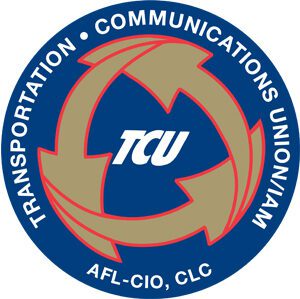Click here for the December 31, 2004 agreement between Amtrak and the members of the Amtrak Service Workers Council (TCU, HERE and TWU).
****
Arbitration Award Spells Victory for Amtrak Service Workers Council
April 27, 2006—A recent arbitration award has won what System Division 250 General Chairman Ron Kloos calls “a great victory for us and our members” at Amtrak.
For the 30 involved members this means finally being paid the money that was due them for the abolishment of their jobs. For all of the unions of the Amtrak Service Workers Council the decision sets important precedent: “it defines a train route for purposes of applying labor protective provisions for all employees in the future,” says GC Kloos. TCU, the Transport Workers Union and UNITE-HERE work together through the ASWC.
The award was issued April 27. It sustains both claims made by TCU following the carrier’s discontinuation of the Three Rivers train route operating between New York City and Chicago, Illinois. Amtrak staffed the Three Rivers from the Pittsburgh, Pennsylvania crew base.
Amtrak contended that cutbacks in service taken up to and including full discontinuance of the Three Rivers did not constitute a “transaction” defined under the agreement to trigger labor protective provisions (formerly known as Appendix C-2). Therefore, the carrier claimed, it was not required to implement LPP benefits for the affected members. Management made this claim based on the fact that the company still operated train service between Pittsburgh and Chicago via the Capital Limited, which originated in Washington, DC.
On behalf of the ASWC, GC Kloos filed two claims asserting that Amtrak indeed had violated the labor protection provisions of the ASWC agreement when it discontinued train service and failed to properly notify employees or follow the procedures of the LPP agreement.
The Special Board of Adjustment found that the union should prevail and ordered the carrier to apply the LPPs to affected members. By order of the award, Amtrak now must pay employees up to five years of earnings.
****

